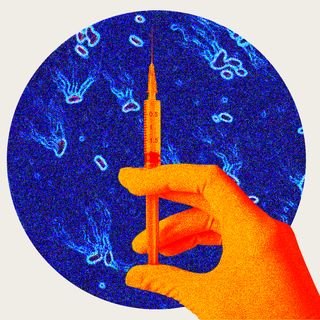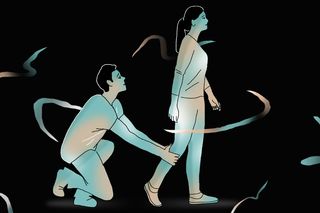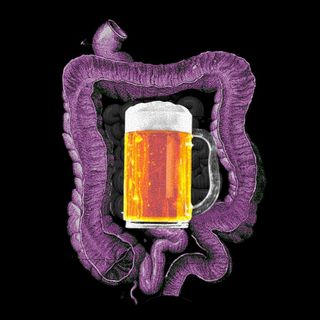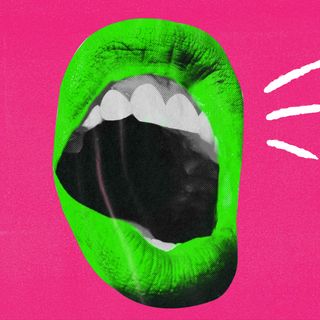
What It’s Like To Live With: Dependent Personality Disorder
“It’s like I constantly needed someone who would prioritize me and be very present in my life. Without that, I felt a huge void.”

What It’s Like to Live With explores the stories of people who see and experience every day a little differently.
The article below mentions suicidal thoughts and bullying. In reading further, please keep in mind the content may cause emotional distress.
I started having suicidal thoughts in December 2020. Some months before that, in June, when I realized I was depressed and anxious, I had approached a psychiatrist. I was on medication too, for about a month or so. As soon as I started to feel better, I’d stopped the meds; I felt it was just a low phase, and that I would probably “recover” in a few months. But that didn’t happen, and my circumstances also added to my woes: I didn’t have a job at the time; my relationship with my parents, who I was living with then, wasn’t so great either. I started having sleepless nights; I would be anxious all day, thinking about the past and the future. So, eventually, after putting it off for quite a while, I started seeing a therapist and things began to look up.
In early 2021, while hunting for a job, I was also applying to places for my Ph.D. I was beginning to be productive again. But then, the second wave of the pandemic began its sweep through the country. My mental health deteriorated again: I realized I was fighting with my friends and my parents every couple of weeks. There came a point — in June 2021, I think — when everyone just stopped talking to me. I finally started seeing a psychiatrist again. Initially, he diagnosed me with low-grade depression and prescribed some medicines.
However, he started to notice just how restless I was due to the absence of friends. I was desperate to patch things up with them, and I kept trying every possible means to make them come back. I kept having anxiety attacks when I wasn’t able to establish contact with them. Throughout my sessions, too, I kept emphasizing just how badly I needed someone to talk to. Then, my psychiatrist decided to have a chat with my friends and my mother. After this, he asked me to fill out a questionnaire.
Turns out, I have been living with something called “Dependent Personality Disorder,” or DPD. Actually, I’d googled my symptoms before that, and ended up suspecting that I might have “Borderline Personality Disorder,” or BPD, instead. But after my diagnosis, my psychiatrist explained to me that I didn’t have BPD.
Related on The Swaddle:
What It’s Like To Live With: Bipolar Disorder
I was 24 when I finally got the diagnosis; it was a relief. It helped me realize that my pessimism, my dependence on others, or any of my mental health experiences really, aren’t my fault. Understanding there’s a term for it was reassuring.
Before concluding I have DPD, he had examined my past too — not just the way I was feeling at present. Even in the questionnaire I was administered, my answers underscored how dependent I felt on external guidance — in terms of making decisions, or just in general. It’s like I constantly needed someone who would prioritize me and be very present in my life. Without that, I felt a huge void. Strangely, I had some awareness of this — it had always struck me as odd that contrary to how depressed people often withdraw into a shell, I craved company even at my worst. In fact, that led me to form relationships with a lot of people who turned out to be quite toxic.
It was sad how little information I could find on DPD, though. Let alone pop culture, even academic literature hasn’t covered it nearly as much as, say, BPD.
DPD impacts me professionally, just like it does personally. At work, I’m quite underconfident about my skills and capabilities. I always feel the work I turn in is flawed, and I’m constantly worried about botching things up. As a result, sometimes I give up even before I start — it’s like I have a very black-and-white, all-or-nothing mindset. What’s probably worse is that I feel I can’t even get started with a piece of work without having someone to guide me through the process. But journaling, and forcing myself to get started — no matter how haphazard — has been helpful.
Related on The Swaddle:
What It’s Like To Live With: An Undiagnosed Eating Disorder
In my personal life, though, I’m always concerned that I’m replaceable. Irrespective of how much the closest of my friends have assured me that it’s not the case, I’ve not been able to shake that feeling off. I always feel like I’m the odd one out and no one would like to be with me because of my financial background, my skin color, my body type, what have you! At the same time, I do believe I will find someone who will truly be there for me. But the fact that I’ve never been in a relationship, and all my advances so far have been met with rejection, end up cementing my feelings of not being “worth it,” so to speak.
The more I understood my diagnosis, I also realized how complex traumatic experiences from my childhood may have led me here. At school, I was bullied. At home, I grew up in a highly patriarchal set-up, where my father made all the decisions for our family. But he didn’t really care — or, perhaps, didn’t know how to — about our emotional wellbeing. While growing up, instead of encouragement, I was always criticized harshly. Even if my mother wanted to oppose any of my father’s decisions, or make some on her own, she couldn’t — she never had that kind of familial support. To add to all of this, my father was also a workaholic. So he was mostly absent. I grew up longing to have a guiding figure in my life.
I have been open about my diagnosis — with friends, family, and colleagues — since I received it. What they often end up telling me, though, is that things will get better and I will heal. I don’t think they understand that it isn’t that easy. But, I guess, I can’t expect everyone to understand, maybe? Besides disclosing my diagnosis to people in my life, I post about my experiences with DPD on social media too — hoping that someone else who might be struggling with this and is feeling as lonely as I am, would have someone to reach out to.
What feels good, though, is that I’m doing better now. I’ve been patiently trying to regulate my “odd” behavior so I can interact “normally” with people. Of course, there are times when I do snap, but I’m trying. If communications get off with anyone, for instance, it does bother me, but I’m trying to learn how to make my peace with it.
This interview has been condensed and edited for clarity. As told to Devrupa Rakshit.
Devrupa Rakshit is an Associate Editor at The Swaddle. She is a lawyer by education, a poet by accident, a painter by shaukh, and autistic by birth. You can find her on Instagram @devruparakshit.
Related


Having a Beer a Day May Be Good for Our Gut Health, Finds a Small Study
